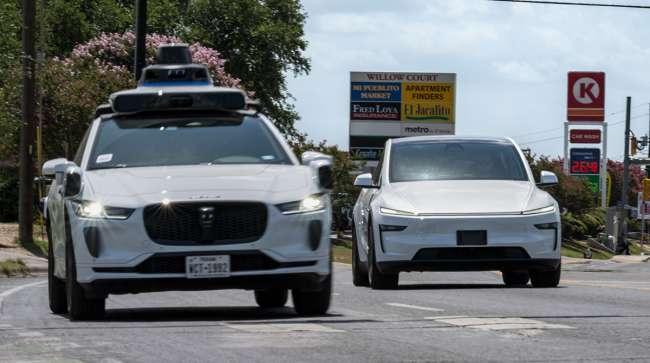Waymo、サービスエリアを拡大
競争激化に対抗するため、Waymoはオースティンでのサービスエリアを大幅に拡大し、37平方マイルから90平方マイルへと倍増することを発表しました。この決定は、運転手なしタクシー会社が急速に進化する市場でその地位を確立することを目指すものであり、特にテスラが同じ都市でロボタクシー分野に最近参入したことを受けてのものです。
Uberとの提携
この拡大を促進しているのは、Waymoと配車サービス大手Uberとの提携です。この提携を活用することで、Waymoはリーチを拡大し、徐々にオースティンを自動運転サービスで包み込むことができます。約4ヶ月前に開始されたこのサービスは、より広範な地域を探索する準備が整っており、これはこの分野の他のプレーヤーからのプレッシャーに対する計算された対応を反映しています。
オースティンにおける競争環境
オースティンは自動運転輸送の戦場となりつつあり、テスラは先月、独自のロボタクシーサービスを開始したばかりだ。テスラのサービスは、選ばれた初期ライダーのグループに限定されたままだが、CEOのイーロン・マスクは、より広い地域への急速な成長を約束している。愛好家や好奇心旺盛なオブザーバーは、この技術主導の聖地で市場のダイナミクスがどのように展開するかを見守っている。
テスラの野心的な目標
テスラのロボットタクシーはまだ一般公開されていませんが、マスク氏はオースティンだけでなく、サンフランシスコ・ベイエリアなどの主要市場でも急速な拡大を計画していることを示唆しています。広範なロボットタクシーサービスの見通しをめぐっては、目に見えるほどの興奮があり、両社はこの交通革命の最前線に立とうと競い合っています。
テキサス州における規制要因
テキサス州は、主に無人運転車に対する規制が比較的緩いため、ロボットタクシーの重要な市場として台頭してきました。このような寛容な環境は、より厳しい法律を持つ州と比較して、これらのサービスの展開の実現可能性を高めます。たとえば、3月下旬の時点で、Waymoのロボットタクシーは、その営業地域内のUber乗車数の20%を占めると報告されており、地元の交通状況において重要な足がかりとなっています。
Waymoの多様なオペレーション
Alphabet Inc.(Googleの親会社)が所有するWaymoは、市内全域で100台以上の自動運転車を運用し、24時間体制で配車サービスを提供するフリートを開発しました。オースティンにとどまらず、ロサンゼルス、サンフランシスコ、フェニックスといった人口の多い大都市圏にもその影響力を拡大しています。この広大なネットワークは、自動運転輸送を一般家庭に普及させようとするWaymoの野心を示しています。
新たな市場への進出
ごく最近、Waymoはニューヨーク市でデータの収集を開始し、さらなる自動運転テストの許可を得るための措置を講じています。テキサスとは異なり、ニューヨークでは自動運転技術とともに車両オペレーターが同乗していることが義務付けられています。Waymoは、広範なテストと最終的な市場参入への道を開くことを目指し、そのような規制の変更を積極的に提唱しています。
自動運転車競争における賭け金
革新的な輸送ソリューションを受け入れる都市での市場シェア獲得を目指し、両社の競争が激化しています。この競争を促進する重要な要因は、自律型サービスに対する消費者の認識の変化です。安全性、効率性、可用性などの要因が最終的に世論と導入率を左右するでしょう。
ロジスティクスと輸送に対するより広範な影響
自律輸送サービスの成長は、物流およびより広範な輸送セクターに重大な影響を与えます。企業にとって、GetTransport.comが提供するようなサービスは、手頃な価格とグローバルなリーチにおける重要な利点を強調しています。物流が最先端の輸送技術を含むように拡大するにつれて、これらの開発を理解することは、このような流動的な市場で競争力を維持するために不可欠になります。
物流プロフェッショナル向けの機会
- 配達におけるイノベーション:ロボット輸送ネットワークの台頭は、配送プロセスを効率化する可能性があります。
- 費用対効果:自動化されたシステムは、運用コストの削減をしばしば約束し、効率化を可能にします。
- サービス提供範囲の拡大企業は、自律型サービスとのパートナーシップを活用して、ロジスティクス能力を強化することができます。
物流の専門家や企業が適応を続ける中で、自動化された輸送オプションがどのように業務を再構築するかを検討する必要があります。進化し続ける状況は、革新を起こし、新しい技術を活用する準備ができている先進的な企業にとって、エキサイティングな可能性を示唆しています。
最終的な感想
Waymoのオースティンへの進出は、自動運転タクシーの市場での優位性を目指す競争において、特にテスラも前進している中で、重要な瞬間を意味します。その影響はライドシェアを超えて物流の世界にまで広がり、商品やサービスの移動方法を再構築する急速な技術統合を強調しています。最終的には、どんなに徹底的なレビューやフィードバックも、個人的な経験から得られる価値にはかないません。GetTransport.comでは、ユーザーは世界中の貨物輸送オプションを素晴らしい価格で探索でき、破産することなく、情報に基づいた意思決定を便利に行うことができます。物流の変化を受け入れ、私たちと一緒に輸送ニーズを簡素化しましょう。貨物輸送を予約しましょう GetTransport.com 今日

 ウェイモのオースティン進出:テスラのロボットタクシーサービスに対抗">
ウェイモのオースティン進出:テスラのロボットタクシーサービスに対抗">